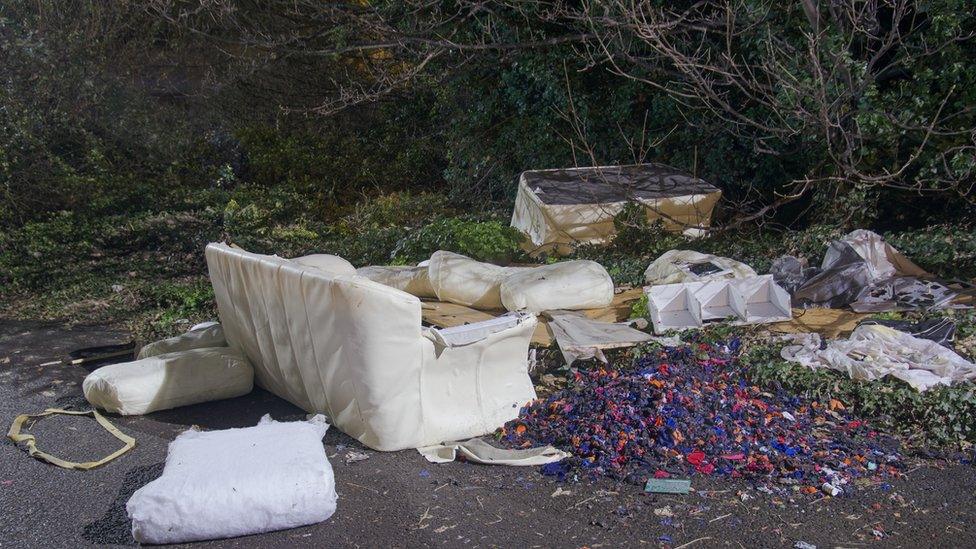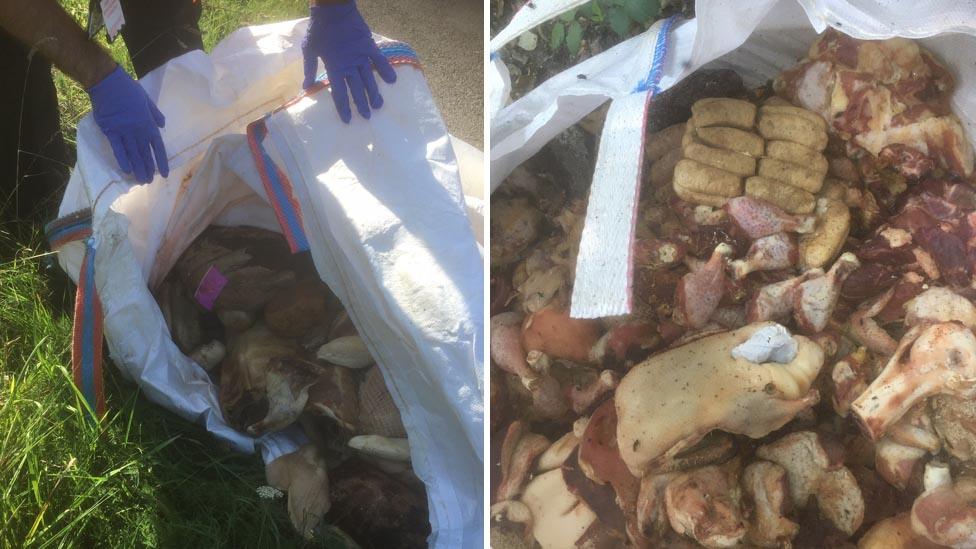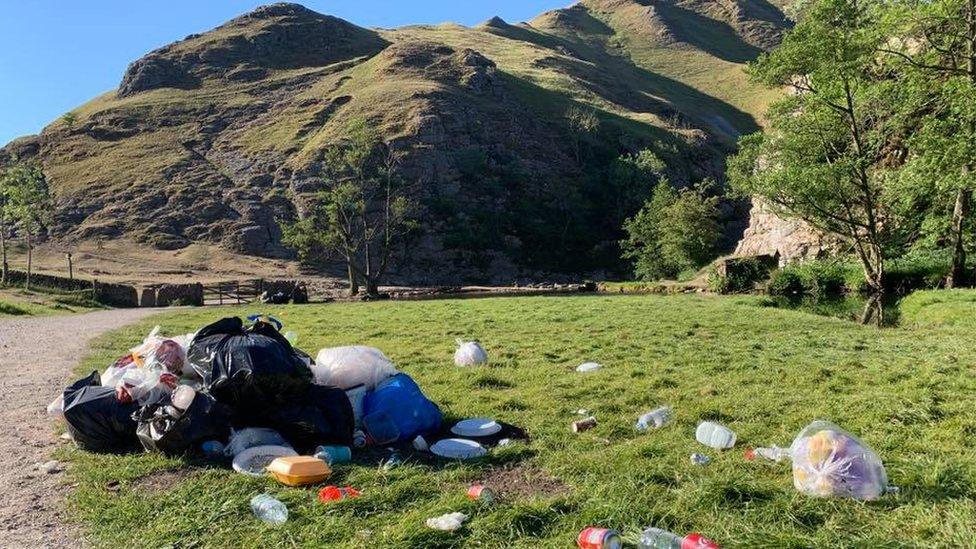Fly-tipping 'became more acceptable in lockdown', MP says
- Published

Lockdown led to an increase in fly-tipping as people struggled to access tips and waste collection, MPs say.
Conservative MP Paul Bristow said the illegal dumping of waste had become more acceptable as people carried out "copy-cat" offences.
He is calling for an increase in the penalties for fly-tipping.
Environment Minister Rebecca Pow said fly-tipping was one of the most common issues she dealt with, both in her constituency and government department.
Figures from the Department for the Environment, Food and Rural Affairs (Defra) show there were 1,072,431 reported incidents of fly-tipping in the year running 2018-19, the last year for which data is available.
In a House of Commons adjournment debate, Mr Bristow said his constituents have "had enough" of fly-tipping - and some have told him seeing the litter during lockdown had affected their mental health.
'Hotspots'
He said he had occasionally cleared fly-tips himself and the problem was not just one for councils to tackle. He called on the government to take action, including more CCTV and stricter fines.
Mr Bristow set out the causes he thought were behind fly-tipping: the cost of proper waste disposal, facilities being "difficult to access", and a "lazy and selfish attitude".
He added: "I would add a fourth driver to that - acceptability. When people regularly see fly-tips, some people think it's acceptable.
"Almost half of recorded fly-tips are on pavements and roads, and these are often the copy-cat offenders. Certain locations become hotspots, where fly-tipping becomes the norm."
Ms Pow said the practice was "unacceptable - and it actually is illegal." She said she was "committed to tackling what is basically a blight on society."
She said she sympathised with all the victims of fly-tipping who had contacted her during the lockdown - adding that these included her father, who frequently has to clear rubbish dumped on his farm.
'Tougher sentences needed'
"Lockdown has highlighted how much we value our green space and our nature," Ms Pow said, and she re-iterated the government's commitment to preventing fly-tipping.
She said powers to fine fly-tippers have been strengthened and more measures are due to be introduced.
Cllr David Renard, environment spokesman for the Local Government Association, said: "Fly-tipping is never acceptable, it is a serious public health risk and costs taxpayers in England £58m a year to clear up.
"While some councils have reported a rise in fly-tipping during the pandemic, levels have also fallen in some places."
He added: "Councils have installed CCTV at fly-tipping hotspots to support successful prosecutions and fly-tip clearance operations have increased.
"Tougher sentences are needed to act as a stronger deterrent to criminals dumping waste, which is why we want to work with the government on reviewing sentencing guidelines for fly-tipping."
- Published30 September 2020

- Published1 June 2020

- Published1 October 2020
